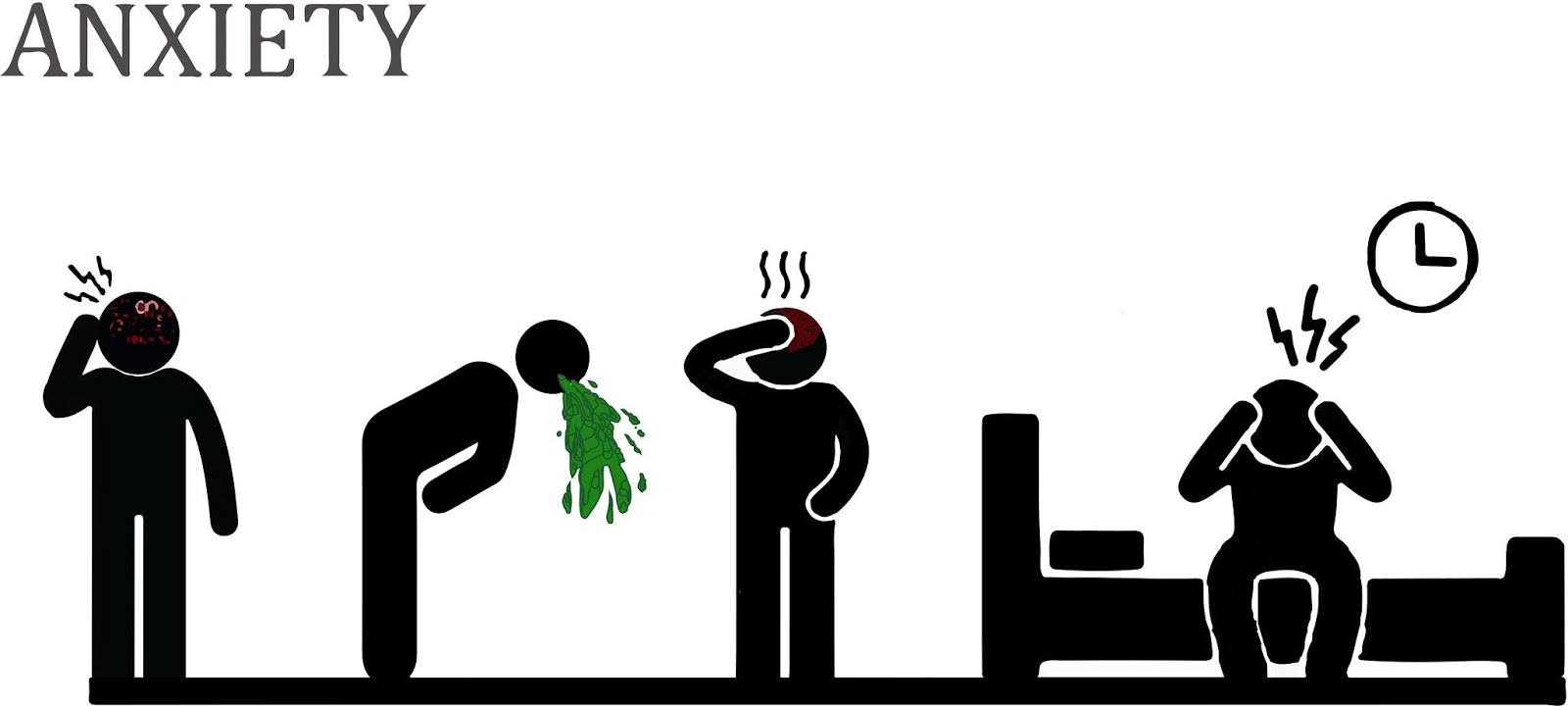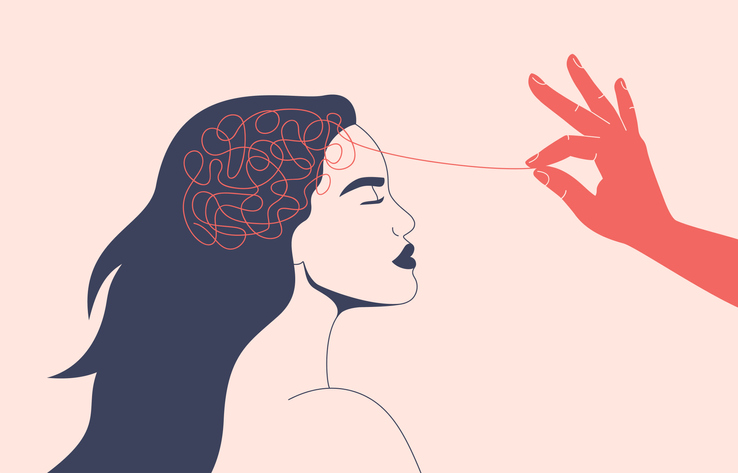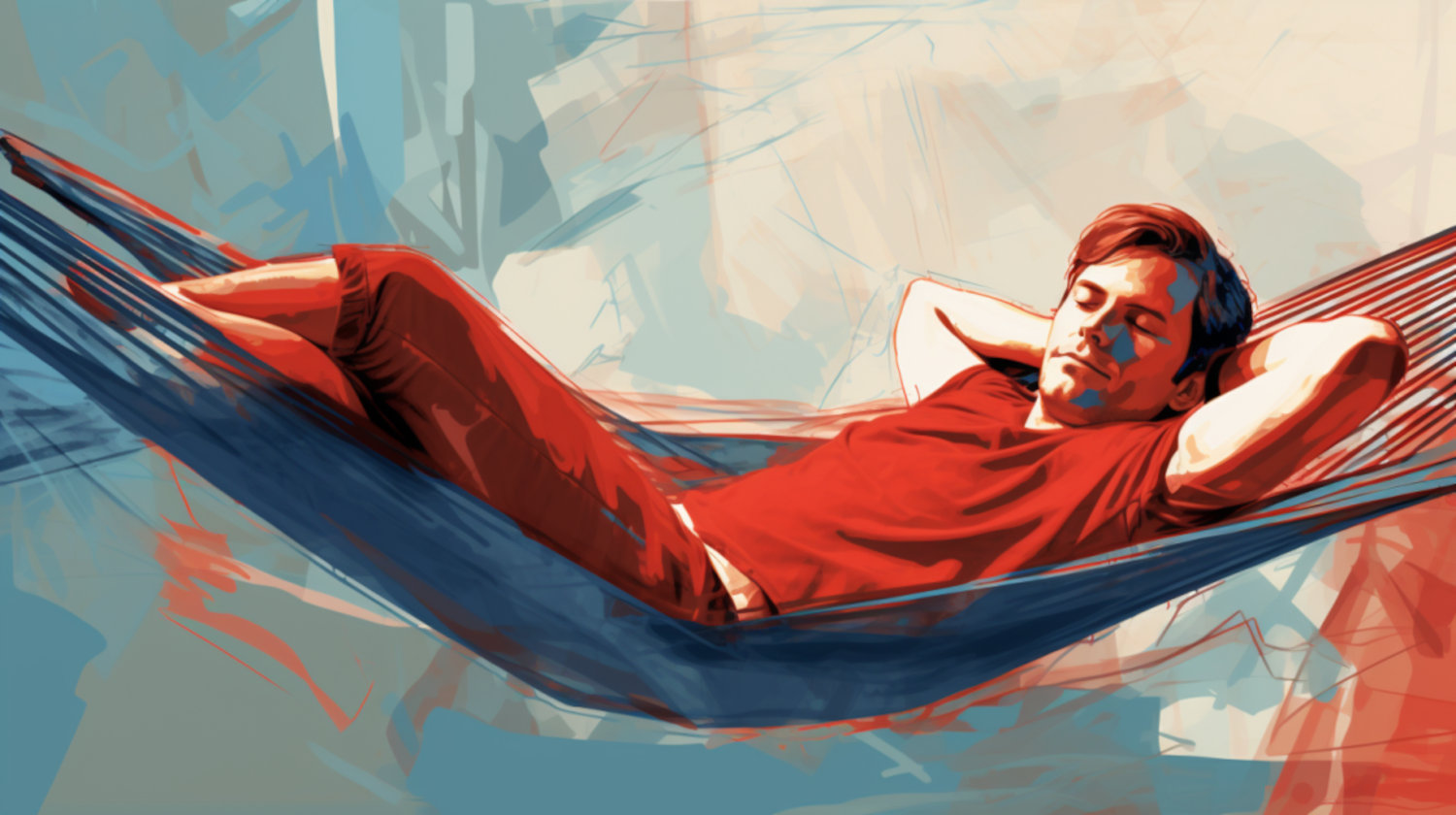In This Article
- What is Anxiety?
- What Causes Anxiety?
- Signs You May Have Anxiety
- Anxiety Facts & Figures
- Treatments for Anxiety
- Drug Treatments for Anxiety
- Other Treatments for Anxiety
- How Marijuana Interacts with Anxiety
- THC vs CBD for Anxiety
- THC's Effect on Anxiety
- CBD's Effect on Anxiety
- Cannabis Products Most Often Used for Anxiety
- Side Effects of Medical Marijuana in Anxiety Patients
- Limitations of Medical Marijuana Treatment for Anxiety
- MMJ Risks & Warnings for Anxiety Patients
- Which States Allow Cannabis for Anxiety?
- Get an MMJ Recommendation with NuggMD!
In recent years, medical marijuana has been legalized in several states. Almost always, state legislatures will designate a list of qualifying health conditions a potential MMJ patient must have before being allowed to participate in the state program. You may have noticed one in particular that occasionally makes the cut -- anxiety.
Even before medical marijuana was legalized, you've probably heard about using marijuana for anxiety. After all, marijuana is a "chill out" substance, is it not? But is there any evidence that this works? And are there any possible negative side effects? Which states allow weed for anxiety? Let's dive in to find out more about using marijuana for anxiety.
What is Anxiety?
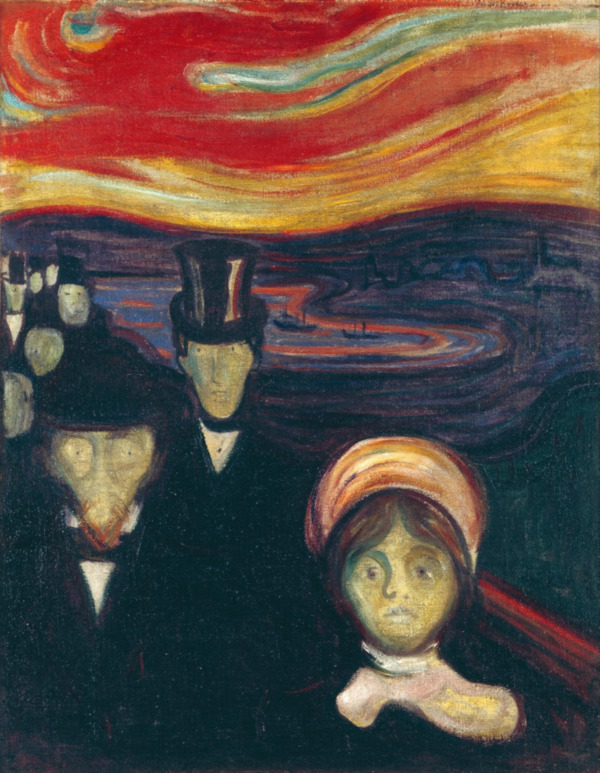
Anxiety is a psychological and physiological response to stress or a perceived threat marked by a sense of fear, nervous expectation, or apprehension regarding near or future events. Anxiety can take many forms and be directed at/focused on many different things.
Everyone feels anxious from time to time; it's just a part of being human. However, when these feelings become excessive, situationally inappropriate, or cause significant impairment of daily life, an anxiety disorder may be present. In these cases, patients can be diagnosed by a mental health professional and seek treatment.
There has long been a discussion about the efficacy of using medical marijuana for anxiety disorders. Anxiety is listed as one of the qualifying medical conditions in some states, such as New Jersey and Pennsylvania. Other states, such as California, Oklahoma and Missouri give their physicians the discretion to recommend marijuana treatments for patients without explicitly listed medical conditions.
What Causes Anxiety?
Many factors can lead to the development of anxiety. Some risk factors include:
- Family History of Mental Illness: Individuals in families with a history of mental illness may be more prone to developing anxiety disorders themselves.
- Chronic health problems: Persistent health problems can result in many life challenges. These can be very stressful in themselves. Anxiety disorders can develop as a result.
- Personality traits: Anxiety is known to be common with many personality types. Certain dispositions, like neuroses, perfectionism, or 'Type A' personality characteristics, may be more susceptible to anxiety.
- Psychological trauma: Those who've undergone any psychological trauma are highly prone to developing anxiety disorders.
- On-going life stressors: The everyday stresses of life, whether it be family trouble, finances, career-related matters, major life changes, or problems with your environment, can contribute to the development of anxiety.
- Other mental illnesses: Other mental illnesses, such as depression, PTSD, phobias, panic disorders, substance abuse, sleeping disorders, and eating disorders, may also increase the chances of co-occurring anxiety disorders.
It may be difficult to determine what exactly causes anxiety in certain instances. More likely than not, a combination of these risk factors play a role in the development of the disorder.
Signs You May Have Anxiety
What are the signs that you may be suffering from anxiety? A feeling of fear or nervousness would be the most obvious symptoms. These feelings may accompany a sense that you're in immediate danger. This is sometimes called "a feeling of impending doom."
Often, when you're experiencing anxiety, your body will exhibit physiological symptoms. These may include:
- heart palpitations,
- sweating,
- nausea,
- hyperventilating or
- trembling.
It may be difficult to think straight, with your thoughts fixated on whatever it may be (if anything) that is causing the anxiety. It may also cause a feeling of restlessness or irritability.
As a reminder, everyone feels anxiety from time to time. It's a perfectly natural psychological and physiological response to stress or a perceived danger. Simply experiencing anxiety from time to time isn't enough to technically "have anxiety."
To formally be diagnosed with an anxiety disorder, you must feel these symptoms more days than not for over six months. The severity of the symptoms must be intense enough to "cause clinically significant distress or impairment in social, occupational, or other important areas of functioning."
Anxiety Facts & Figures
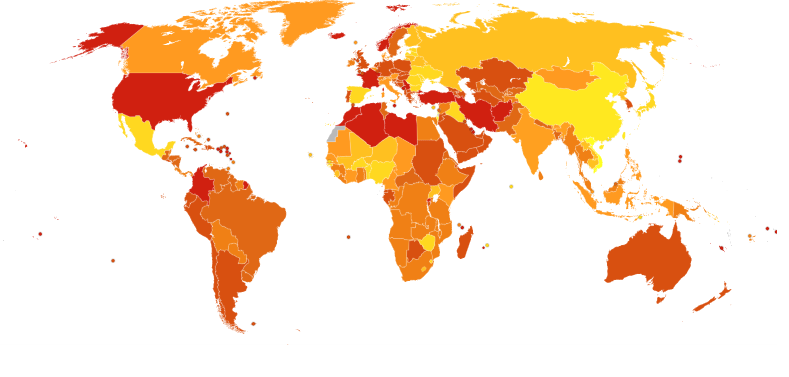
According to the Anxiety and Depression Association of America (ADAA), 18% of Americans, or 40 million people, will experience an anxiety disorder in any given year. Only a third of these people will go on to receive treatment, despite the many available treatment options.
According to the World Health Organization, 264 million people were suffering from an anxiety disorder in 2017. This number has been decreasing as time goes on. In the 1990s, this number was as high as 600 million (at least until 2020 hit us).
Yet, despite this decrease, anxiety disorders are still the most common forms of mental illness in the world. It's also a common co-occurring illness, with 50% of those diagnosed with depression having anxiety as well.
Anxiety disorders do not affect everyone equally. The vast majority of those who suffer are women, who account for 63% of cases. It's also been found that higher levels of education can decrease the likelihood of developing an anxiety disorder.
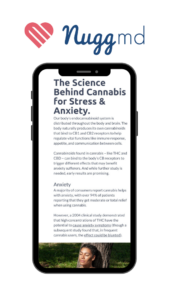
Find natural, lasting relief with our comprehensive (and completely free) patient’s guide to medical cannabis for stress and anxiety.
Treatments for Anxiety
There are many treatment options available to those who suffer from anxiety. Like many mental illnesses, the foundation of treatment lies in psychotherapy and medication.
Drug Treatments for Anxiety
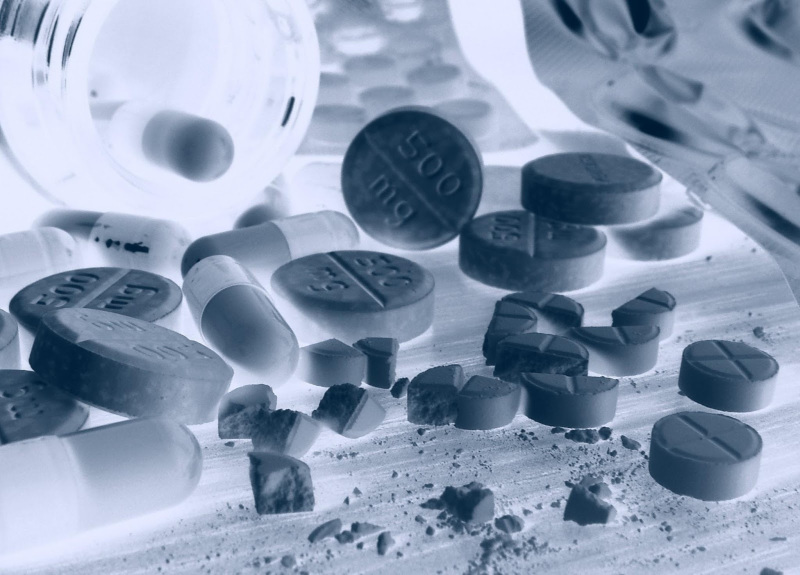
Antidepressants
Antidepressants are a group of several types of medications used for the treatment of depression, primarily. However, they can also be effective for other mental illnesses. Anxiety is one of them. Usually, a form of antidepressant called a Selective Serotonin Reuptake Inhibitor (SSRI) is prescribed for those with severe anxiety disorders. Brand names like Zoloft, Prozac, Celexa, and Paxil are common.
Benzodiazepines
While taking SSRIs are effective at mitigating and treating symptoms of anxiety, they need to be taken over long periods to be effective. Another class of drugs, called Benzodiazepines or tranquilizers, can kick in much faster. Effects usually only take one hour to develop. Common brand names of benzodiazepines are Klonopin, Xanax, Valium, and Ativan. This is the most widely prescribed drug for the treatment of anxiety. Yet, the drugs themselves can be very addictive and dangerous when used for long periods.
MAOIs
Monoamine Oxidase Inhibitors (MAOIs) are another type of antidepressant that has been used to treat severe anxiety like panic disorder. In most cases, MAOIs are used when patients haven't responded well or effectively to other treatments. MAOIs have a long list of food and drug interactions that can be potentially dangerous. As such, they are not usually used until other antidepressants have been tried first.
Buspirone
Buspirone, also known by the brand name Buspar, is an anti-anxiety medication that is designed to treat chemical imbalances in the brain that cause anxiety. Buspirone is capable of treating the physical symptoms of anxiety, such as tension, rapid heartbeat, and agitation. Nevertheless, it is not a very common prescription for anxiety. Generally speaking, one of the previously mentioned drugs will be prescribed before Buspirone.
Other Treatments for Anxiety
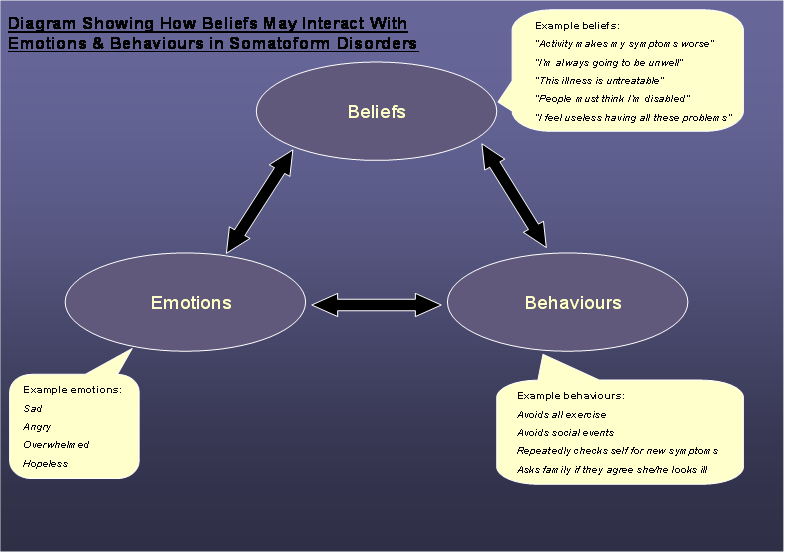
Psychotherapy
Very rarely will a psychiatrist prescribe a medication without psychotherapy to accompany its use. Mental health professionals will use pharmaceuticals to treat or control mental illness symptoms so that the psychotherapeutic work can be done. Wherever possible, they will want to wean patients off their medication after progress has been made in therapy. This is the same case for anxiety.
Not only that, but some patients do not want to take pharmaceutical drugs. They may find the coping techniques within psychotherapy. The most common and most effective therapeutic technique for anxiety is Cognitive Behavioral Therapy. This is focused on how your thoughts, or cognitions, contribute to your feelings of anxiety. Tackle the cognitions, tackle the anxiety.
Lifestyle Changes
Anxiety is as much physical as it is mental. As such, there are many lifestyle changes and choices that can be made to positively contribute to anxiety. Improving diet, exercising regularly, keeping a clean and tidy environment, and abstaining from the use of alcohol and hard substances can help improve symptoms of anxiety disorders.
How Marijuana Interacts with Anxiety
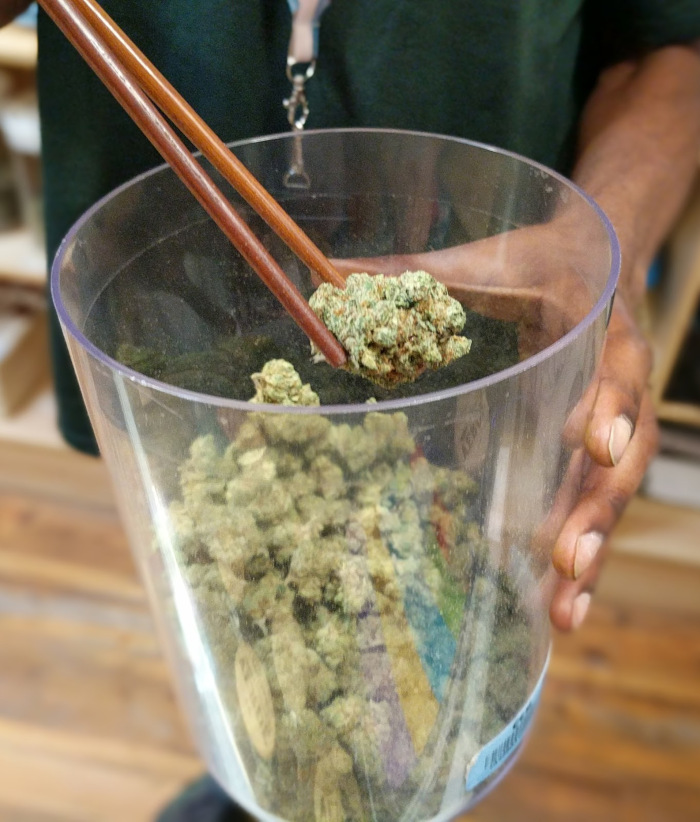
*Note: The following does not constitute a treatment recommendation of any kind. Marijuana or marijuana derivatives are not currently approved by the FDA for the treatment of anxiety-related disorders.
Anxiety disorders are sometimes among the list of qualifying health conditions for enrolling in state MMJ programs. Yet, marijuana can interact with anxiety in very different ways depending upon the person.
Medical marijuana interacts with the brain via the endocannabinoid system. The endocannabinoid system is made up of receptors specific to cannabinoids; the most famous of which are THC and CBD. This system is naturally responsible for the regulation of stress and anxiety by releasing and controlling endocannabinoids, which are the body's own naturally occurring cannabinoids. Endocannabinoids are similar to the compounds found within marijuana.
These endocannabinoid receptors are found within the amygdala and hypothalamus, (and throughout the body). These are the areas of the brain directly responsible for responses to stress, anxiety, adrenaline, etc. So when using medical marijuana, there are cannabinoids known to help alleviate anxiety that travel to these areas of the brain and interact with the endocannabinoid system to provide a sense of relaxation and well being -- usually -- unless one ingests way too much for their tolerance.
In addition to beneficial cannabinoids, there are certain terpenes that may reduce anxiety, according to studies.
Marijuana can either relieve or increase anxiety, depending on the person and the circumstance. Many people report increased feelings of relaxation and calmness after using medical marijuana. Others feel a sense of heightened mental activity, which can naturally lead to increased feelings of anxiety and anxious thoughts (particularly if taking too strong a dose).
THC vs CBD for Anxiety
Within medical marijuana and marijuana products, two cannabinoids are responsible for the general effects associated with medicinal benefits: THC and CBD.
THC's Effect on Anxiety
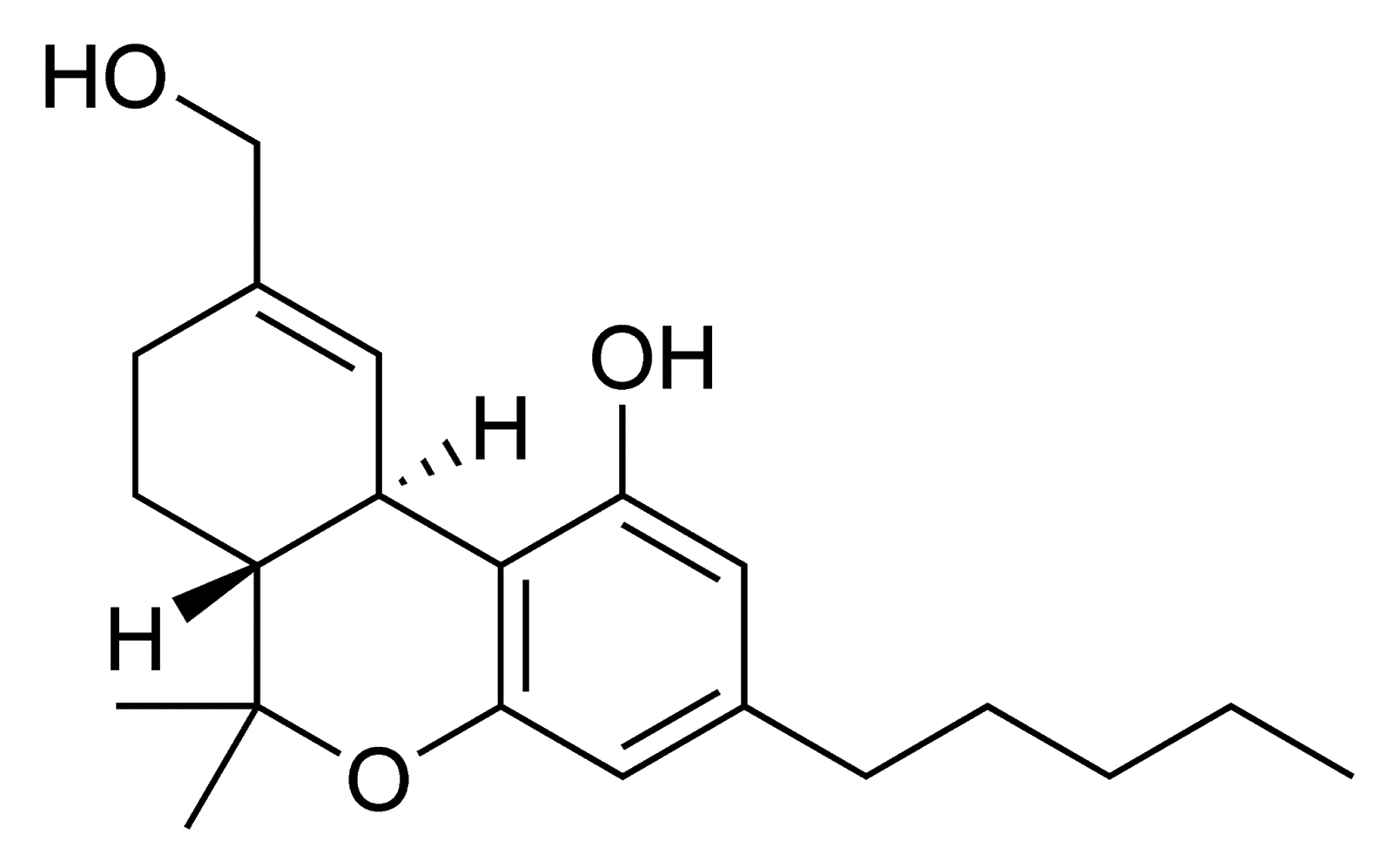
THC stands for Tetrahydrocannabinol, the primary intoxicating compound in marijuana. As the name suggests, this is the cannabinoid that seems to stimulate your thoughts and increase your brain activity. As you can expect, this can lead to an increase in anxious brain activity for those prone to anxious thoughts.
Research suggests that THC can help provide relief from anxiety but that high-THC medical marijuana will usually relieve anxiety in lower doses while increasing it in higher doses. This is why medical marijuana patients should talk with their doctor regarding their particular level of anxiety to determine whether THC is right for them and what dosages are appropriate.
CBD's Effect on Anxiety
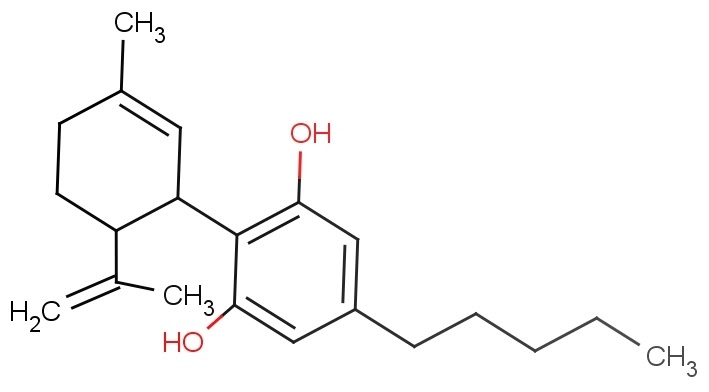
CBD stands for cannabidiol, which is the cannabinoid compound that is primarily responsible for the relaxing, calming, and pain relief effects associated with MMJ. CBD is not intoxicating and, thus, will not produce the same effects THC is known to produce.
When CBD enters the brain, researchers believe it influences endocannabinoid receptors in the peripheral nervous system associated with pain and inflammation. This, in turn, is what produces the pleasant, anti-anxiety, and relaxing feelings associated with CBD.
As such, many medical cannabis patients report success in using CBD to help relieve anxiety. More likely than not, the more CBD and less THC in your weed, the better from an anxiety standpoint.
Currently, CBD is being researched more fully to determine the extent of its anti-anxiety and anti-psychotic uses.
Cannabis Products Most Often Used for Anxiety
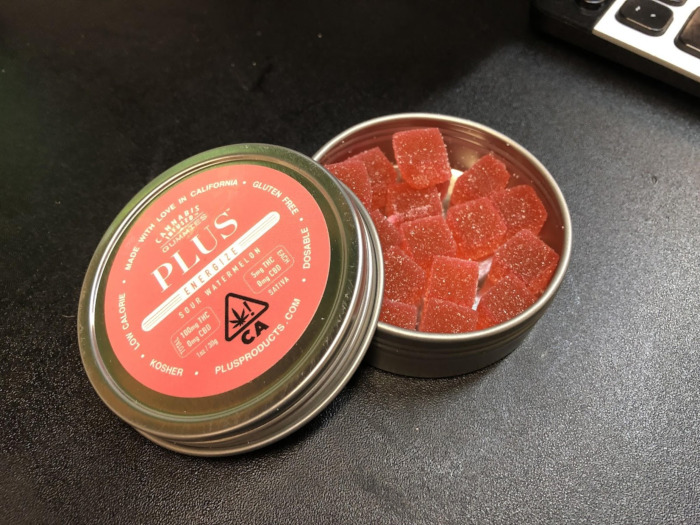
Today, there are many marijuana products for anxiety patients to choose from. Given the variety in properties, some of these products may be better for patients with anxiety than others. Generally speaking, those cannabis products with lower THC percentages and higher CBD are most often used for anxiety treatments. For instance, many CBD tinctures, oils, balms, and teas can give patients calming and relaxing effects without any of the intoxicating elements associated with THC.
Many brands of edibles contain little, if any, THC that can be used in the same way. Some edibles contain microdoses of THC -- as low as 1.3 or 2.5mg. This allows the patient to regulate their dosage precisely for a more controlled effect. These microdose products can be found most commonly in the form of tinned mints or candies.
It's also common to find vape oil cartridges with 1:1 ratios of THC to CBD. These products are thought to provide the relief of THC, while the CBD mellows the effect of the high. Anxiety patients can also find high CBD smokable flower such as AC/DC and Charlotte's Web. Some prefer to mix it with high THC indica while others use the CBD flower alone.
Side Effects of Medical Marijuana in Anxiety Patients
Contrary to popular belief, marijuana does have side effects -- some good, some bad. Some patients experience all of the good and none of the bad, and some vice versa. Most often, the intensity and type of side effect will depend on the type, strain and dosage the patient is using.
Possible Positive Side Effects of MMJ for Anxiety
- Alleviation of nervousness, stress, tension, and/or fear.
- Promotion of relaxation and calmness.
- Mitigation of physical symptoms of anxiety, such as tightness, pains, aches, or irritability.
- Mood elevation.
Potential Negatives Side Effects of MMJ for Anxiety
- Proper dosages vary from patient to patient, which runs the risk of using too much.
- Serious psychological side effects like hallucinations, psychosis, or depersonalization can occur following extremely heavy use.
- May cause intense fatigue or sleepiness (a.k.a. couch lock.)
Limitations of Medical Marijuana Treatment for Anxiety
There are some patients whose anxiety is worsened following the use of medical marijuana. Nearly everyone is capable of feeling anxious or paranoid if they've taken too large a dose.
Popular opinion holds that limiting consumption to the strains that are best suited to calm and relaxation, such as indicas, is best for those anxious medical patients. It's said that this can reduce the negative side effects of using medical marijuana.
However, it's important to remember that the type of reactions that patients experience are directly related to dosing and type of consumption, not just the level of reaction. An MMJ patient may feel extremely calm and relaxed with a 2.5mg oral dose of THC, but could feel anxious and jittery with a 10mg dose. Likewise, the wrong strain could lead to increased feelings of anxiety, rather than a reduction. This feeling could last for several hours with an edible, but go away after 30 minutes with an inhaled dose.
This is why it's extremely important for anxiety patients to candidly discuss dosage and interactions with their medical marijuana doctor before beginning any medical marijuana treatment, even in states where they don't need a recommendation.

Find natural, lasting relief with our comprehensive (and completely free) patient’s guide to medical cannabis for stress and anxiety.
MMJ Risks & Warnings for Anxiety Patients
The use of medical marijuana does carry with it some risks and health warnings. The inhalation of any smoke can be harmful to the lungs and may negatively affect a patient's breathing. Not only that, but people who are diagnosed with anxiety disorders are more likely to suffer from substance abuse disorders.
This means that medical marijuana patients using medical marijuana as an anti-anxiety treatment run the risk of developing a physical or psychological dependence on cannabis. Such dependence may lead to other difficulties or setbacks in life. Marijuana dependency could even cause significant distress and contribute to the worsening of anxiety symptoms.
Any medical marijuana patient who feels they may be developing a dependency on their medical marijuana, or who find themselves taking higher doses of marijuana to feel relief, should speak with their doctor about their symptoms as soon as possible.
Which States Allow Cannabis for Anxiety?
Currently, only a few states specifically allow the use of medical marijuana for anxiety. In these states, simply being diagnosed with the approved type of anxiety disorder is enough to qualify for a medical marijuana card.
There are also a few states that allow a doctor to recommend medical marijuana to anyone they feel is an appropriate candidate for treatment because of their condition.
There is hope for anxiety patients in states that legalized recreational marijuana as well. In these states, anxiety patients 21 and over can use weed for anxiety or any other purpose they choose. But even in these states it's vital to discuss this decision with a qualified physician because weed can interact with anxiety medications.
Get an MMJ Recommendation with NuggMD!
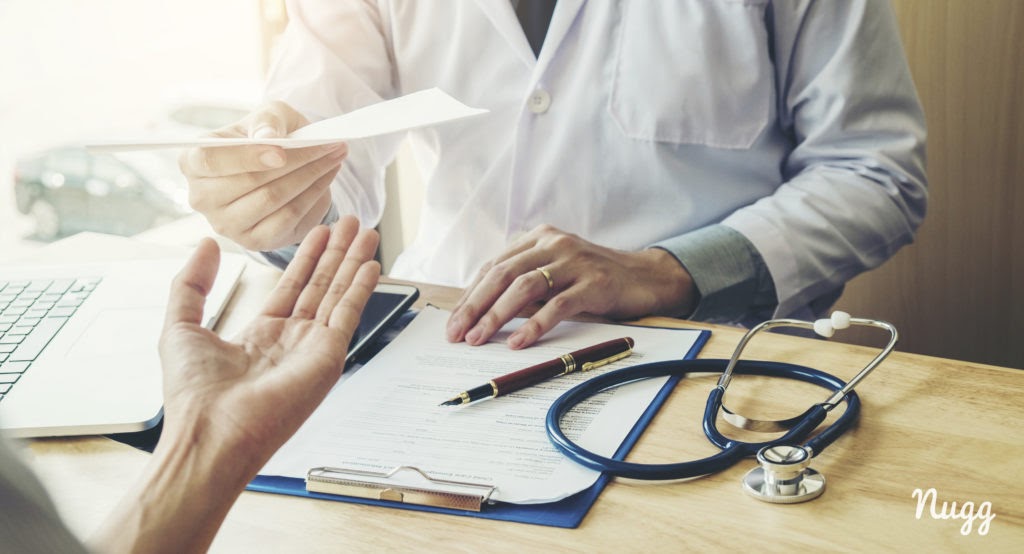
Are you thinking of trying medicinal cannabis for your anxiety? NuggMD can help!
We've partnered with many trusted and compassionate medical marijuana doctors to help you get your medical evaluation as soon as possible. And during your NuggMD evaluation, you'll have the chance to discuss any questions or concerns you may have regarding medicinal cannabis and anxiety.
NuggMD physicians are available from 8AM to 10PM seven days a week in. NuggMD physicians are fully-licensed and certified in the state for which they provide medical marijuana evaluations.
No appointment is needed to see a NuggMD doctor from the privacy and comfort of home; and your evaluation is free if you don't qualify! So why wait? Sign-up with NuggMD today!
The information in this article and any included images or charts are for educational purposes only. This information is neither a substitute for, nor does it replace, professional legal advice or medical advice, diagnosis, or treatment. If you have any concerns or questions about laws, regulations, or your health, you should always consult with an attorney, physician or other licensed professional.

